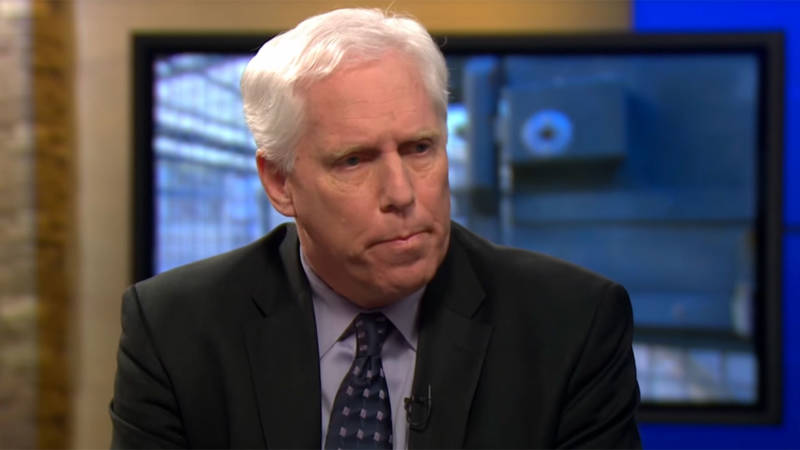“If there are police agencies around this state that have not been turning over potentially criminal conduct and just kept it behind closed doors, then this law is going to be a very good sunlight provision,” Wagstaffe said.
If not for that law and the reporting that uncovered additional information, “I can't think of the circumstance in which it would have come to our attention,” Wagstaffe said in an interview Tuesday morning. “I think reporting that we had from (KQED and the Bay Area News Group) is what has prompted us at least to reopen the inquiry.”
Considering there were two other instances where Granucci allegedly asked women for sex in exchange for using his authority to help them, Wagstaffe said it’s possible that Granucci solicited bribes. Had they known, they could have reviewed past arrests the officer made to try to uncover additional victims or witnesses.
But a lawyer for the officer disputed the department's version of events on Tuesday, calling it "false and incomplete."
The former office never solicited sex from the woman charged with DUI, attorney Lina Balciunas Cockrell wrote in an email. Rather, the woman "attempted to initiate a personal relationship with" Granucci and "then she manipulated the situation for her own personal gain."
Cockrell also disputed facts attributed to a woman who came forward after Granucci was fired. According to records released under the new law, Granucci tried to coerce her into sex in 2015, and "led her to believe she was being released from custody because he did her a favor (which police said he didn't do) and used this as leverage to solicit a sexual relationship with the woman. The woman refused."
Cockrell wrote that her client didn't attempt to initiate a sexual relationship with that woman.
The lawyer did not comment on another allegation in the records: that Granucci met a woman in 2017 while trying to arrest her son, and maintained a sexual relationship with her for several months.
A Burlingame police officer since 2000, Granucci was fired after an internal investigation found he “surreptitiously obtained” the phone number of a woman he had arrested in March 2018 under suspicion of drunken driving, according to the records. He went to her house the next day, after she was released from a “sobering center.”
The police department presented information about the DUI case to prosecutors, but the district attorney’s subsequent criminal investigation found no provable charges, and the case was closed in April.
The revelations show the new law is working, said its sponsor, state Sen. Nancy Skinner, D-Berkeley.
"The benefit of transparency is it ensures that the type of accountability that all of us expect, not only with law enforcement but with all public agencies, occurs," Skinner said. "It would certainly appear that the records showed that (Granucci) abused his power, and he abused (it) in a way that created a sexual assault condition with women."
A police watchdog said the Burlingame case shows the new law is breaking down decades of police secrecy about internal affairs investigations.
"This case is at the heart of what SB 1421 is all about: addressing the problems created by California’s history of secrecy around police misconduct and restoring the public’s right to know," Peter Bibring, director of police practices for the ACLU of Southern California, wrote in an email Tuesday.
Wagstaffe said Tuesday that the additional cases could change his calculus on whether prosecutors can prove criminal charges against Granucci. He said those could include charges for soliciting bribes or illegally accessing and misusing confidential law enforcement information, as well as “any other criminal violation that may have occurred.”
“When we did our investigation in the beginning of 2018 it was word versus word,” Wagstaffe said. “Multiple victims give strength to the case.”
UC Berkeley graduate student reporters Susie Neilson and Josh Slowiczek contributed to this story.
This story was reported in collaboration with the Bay Area News Group and Investigative Studios, an independent nonprofit news organization affiliated with the Investigative Reporting Program at UC Berkeley.

